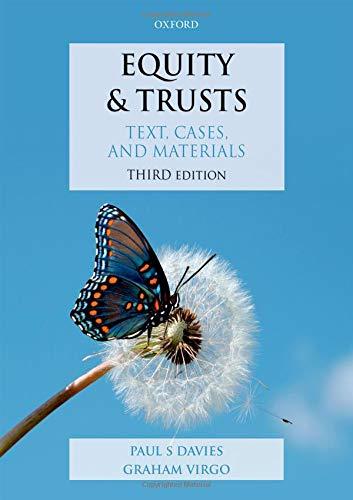Question
QUESTION 5.15: Here is the critical part of the case of Pierson v. Post,34 . . . Post, being in possession of certain dogs
QUESTION 5.15:
Here is the critical part of the case of Pierson v. Post,34 " . . . Post, being in possession of certain dogs and hounds under his command, did, 'on a certain wild and uninhabited, unpossessed and waste land, called the beach, find and start one of those noxious
beasts called a fox,' and whilst there hunting, chasing and pursuing the same with his dogs and hounds, and when in view thereof, Pierson, well knowing the fox was so hunted and pursued, did, in the sight of Post, to prevent his catching the same, kill and carry it off. A verdict having been rendered for [Post, who was] the plaintiff below, [Pierson appealed] . . . However uncourteous or unkind the conduct of Pierson towards Post, in this instance, may have been, yet his act was productive of no injury or damage for which a legal remedy can be applied. We are of opinion the judgment below was erroneous, and ought to be reversed."
Does this decision implement a principle of tied ownership or a principle of first possession?
Note that the case, which is a staple in introductory courses on property law in American universities, seems irrelevant to modern conditions because first possession of foxes apparently does not lead to capturing too many of them too soon. Economic analysis suggests that it should not be because of concerns about which hunter owns a fox.
Explain the costs and benefits to weigh in an efficiency analysis of this case
Step by Step Solution
There are 3 Steps involved in it
Step: 1

Get Instant Access to Expert-Tailored Solutions
See step-by-step solutions with expert insights and AI powered tools for academic success
Step: 2

Step: 3

Ace Your Homework with AI
Get the answers you need in no time with our AI-driven, step-by-step assistance
Get Started


